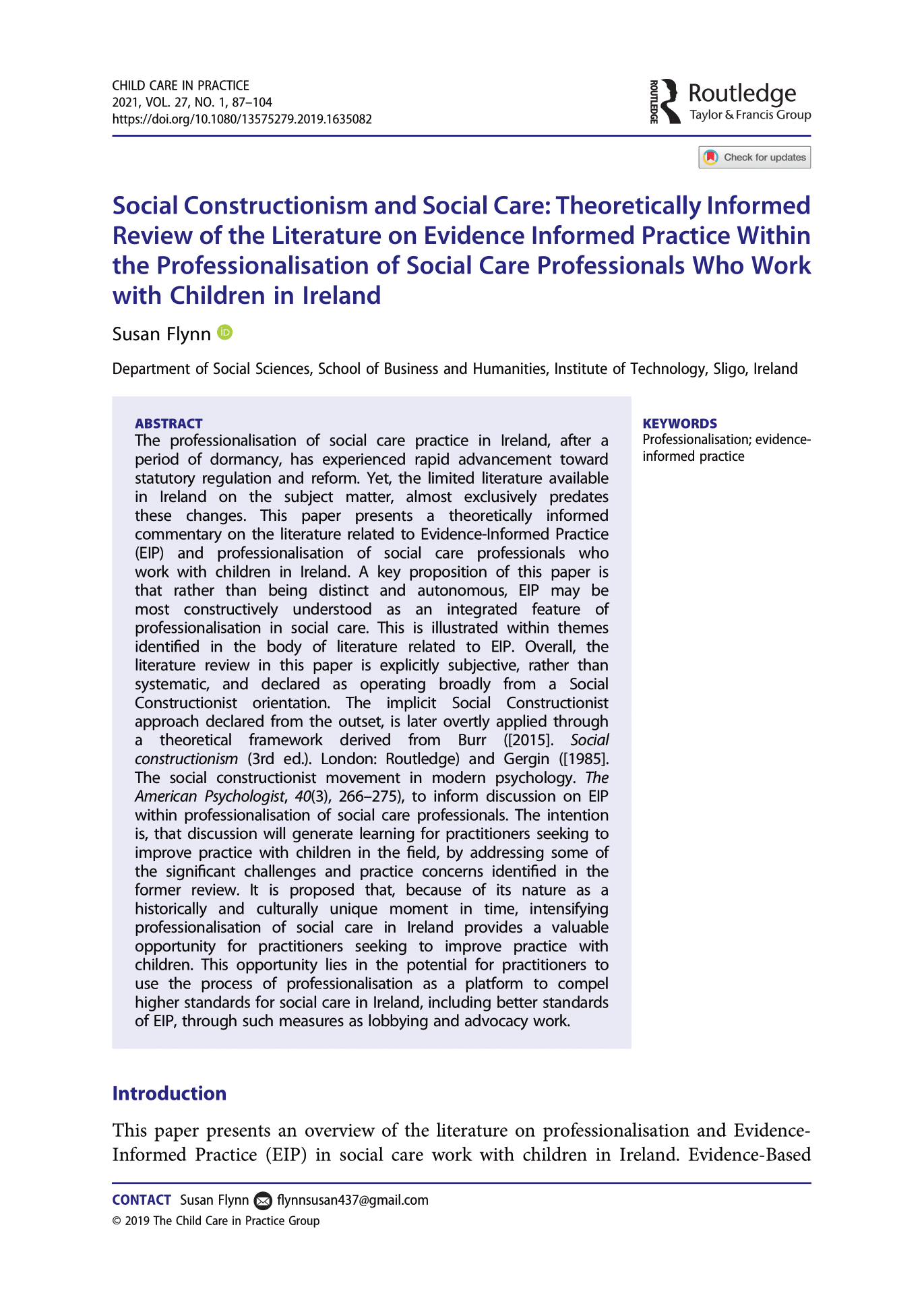Social Constructionism and Social Care: Theoretically Informed Review of the Literature on Evidence Informed Practice
The professionalisation of social care practice in Ireland, after a period of dormancy, has experienced rapid advancement toward statutory regulation and reform. Yet, the limited literature available in Ireland on the subject matter, almost exclusively predates these changes. This paper presents a theoretically informed commentary on the literature related to Evidence-Informed Practice (EIP) and professionalisation of social care professionals who work with children in Ireland. A key proposition of this paper is that rather than being distinct and autonomous, EIP may be most constructively understood as an integrated feature of professionalisation in social care. This is illustrated within themes identified in the body of literature related to EIP. Overall, the literature review in this paper is explicitly subjective, rather than systematic, and declared as operating broadly from a Social Constructionist orientation. The implicit Social Constructionist approach declared from the outset, is later overtly applied through a theoretical framework derived from Burr ([2015]. Social constructionism (3rd ed.). London: Routledge) and Gergin ([1985]. The social constructionist movement in modern psychology. The American Psychologist, 40(3), 266–275), to inform discussion on EIP within professionalisation of social care professionals. The intention is, that discussion will generate learning for practitioners seeking to improve practice with children in the field, by addressing some of the significant challenges and practice concerns identified in the former review. It is proposed that, because of its nature as a historically and culturally unique moment in time, intensifying professionalisation of social care in Ireland provides a valuable opportunity for practitioners seeking to improve practice with children. This opportunity lies in the potential for practitioners to use the process of professionalisation as a platform to compel higher standards for social care in Ireland, including better standards of EIP, through such measures as lobbying and advocacy work.
